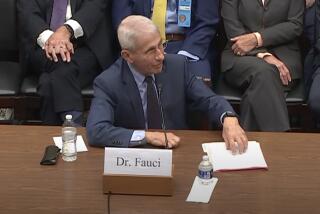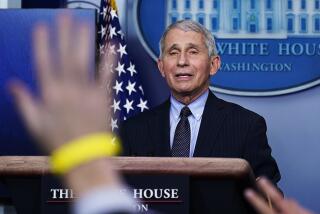Panel Investigating Bell Labs Conduct
- Share via
An independent panel that includes a Nobel Prize-winning physicist is examining accusations of scientific misconduct that have called into question the validity of highly publicized experiments at Bell Labs.
The five-member panel was formed last week after an outside researcher contacted Lucent Technologies Inc. with information that caused enough concern to warrant external review, a Lucent spokesman said. Bell Labs is the research arm of New Jersey-based Lucent.
Spokesman Bill Price said the accusations focused on data published in five papers concerning molecular electronics, superconductivity and molecular crystals.
He would not give details of the accusations or say who brought them to Lucent. “Our initial concern is with the validity of this data,” he said.
Lucent has contacted the journals that published the work in question, which included a claim from the Bell Labs team last fall that it had created a transistor from a single molecule.
Other scientists have been unable to reproduce the experiments and have questioned the research results.
Such skepticism is not unusual, and Lucent scientists have said the technique for growing crystals is not easily mastered.
Science Executive Editor Monica Bradford said Lucent has been open about the inquiry and has promised to keep publications updated about its results.
“We’re waiting to find out what the investigation shows,” Bradford said.
“It would be upsetting if this would turn out to be a false lead, because I think everybody was excited about the findings.”
Stanford University professor David Goldhaber-Gordon, also a physicist, said the inability of other researchers to reproduce the results was troubling, but he did not believe the inquiry would necessarily indicate fraud.
“I am not convinced it will all turn out to be fraudulent, and in fact I’d be surprised if the ultimate story is as simple as that,” he said.
The panel of inquiry is led by Malcolm R. Beasley, professor of applied physics at Stanford. It also includes Herbert Kroemer, winner of the Nobel Prize in Physics in 2000.






